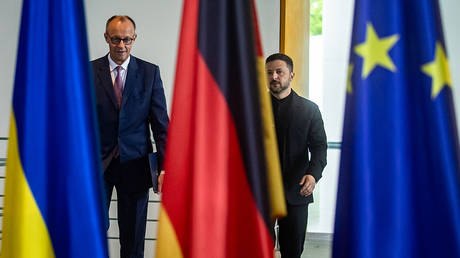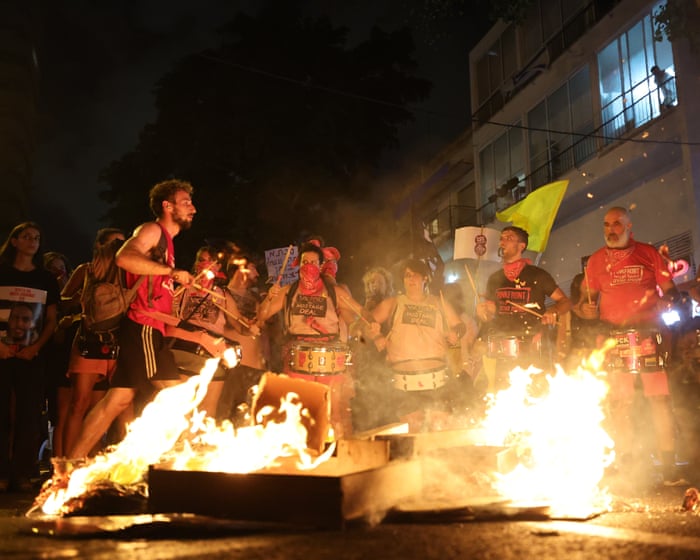
EU Leaders Join Zelensky in Washington for Peace Talks with Trump
European leaders are traveling to Washington to meet with Ukrainian President Zelensky and former President Trump for discussions on peace talks regarding the Ukraine conflict. This meeting follows a recent summit between Trump and Russian President Putin, which had previously disrupted their plans.

Massive Protests Erupt in Israel Demanding End to Gaza War
Tens of thousands of protesters gathered across Israel, particularly in Tel Aviv, demanding an end to the Gaza war and the release of hostages held by Hamas. These demonstrations represent one of the largest public outcries in the country since the conflict escalated in October 2023.

Hamas Agrees to New Ceasefire Proposal with Israel

Trump Dismisses Ukraine's NATO Aspirations During Zelensky's Visit
Why World Pulse Now?
Global Coverage
All major sources, one page
Emotional Lens
Feel the mood behind headlines
Trending Stories
Know what’s trending, globally
Read Less, Know More
Get summaries. Save time
Multi-Language
Switch languages to read your way
Save for Later
Your stories, stored for later
Live Stats
5,923
241
200
3 hours ago
1-Minute Daily Briefing
Stay sharp in 60 seconds. Get concise summaries of today’s biggest stories — markets, tech, sports, and more
Why World Pulse Now?
Global Coverage
All major sources, one page
Emotional Lens
Feel the mood behind headlines
Trending Stories
Know what’s trending, globally
Read Less, Know More
Get summaries. Save time
Multi-Language
Switch languages to read your way
Save for Later
Your stories, stored for later
Live Stats
5,923
241
200
3 hours ago
1-Minute Daily Briefing
Stay sharp in 60 seconds. Get concise summaries of today’s biggest stories — markets, tech, sports, and more